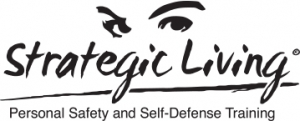First, let me make it clear what I mean by “slut.” Slut is a noun with excess baggage. Slut is used as a negative judgmental label applied by Person A onto Person B. Generally Person B is female, and Person A is often but certainly not always male. Person A disapproves of Person B’s general appearance, style of dress, or some other behavior. Person A then labels Person B as a “slut,” frequently to justify their own bad, if not abusive, behavior to Person B.
The label “slut” actually tells more about the mental framework (prejudices and stereotypes) of Person A, and little about the woman at whom this epithet is hurled.
Much has been made about Slutwalks reclaiming the word “slut.” I can’t say that I’ll be going to Seattle’s Slutwalk to “reclaim” anything. I do not care to reclaim, reframe, or rehabilitate the word “slut.” I want to quash this word as a weapon. I want to nullify its negative energy, neutralize its power, negate its impact on women.
And any weapon can be overcome. With a little preparation, we all can learn to minimize its impact. Because nobody deserves to be targeted for rape.
